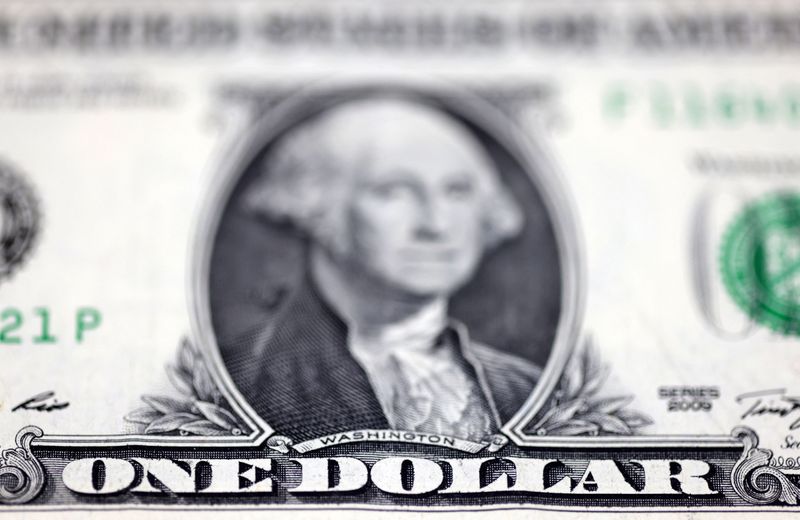By Karen Brettell and Stefano Rebaudo
(Reuters) -The dollar rose on Friday, heading for a weekly gain as investors assessed the likely impact on the U.S. economy of Tuesday’s election of Republican Donald Trump as U.S. president.
Analysts expect Trump’s policy proposals – including more trade tariffs, a crackdown on illegal immigration, lower taxes and business deregulation – to boost growth and inflation.
But in the short term, there remains significant uncertainty about what policies will actually be implemented.
“We don’t really know how much of it was campaign rhetoric, how much of it is a bargaining position, how much of it is speaking principles,” said Marc Chandler, chief market strategist at Bannockburn Global Forex in New York. “Part of the volatility we’re seeing in the dollar and in interest rates is the market is trying to figure this out.”
Republicans have also won control of the Senate and are leading the race for the House of Representatives, with several races still to be held.
The price jumped to a four-month high of 105.44 on Wednesday, but has since fallen, partly due to profit-taking. It rose 0.58% to 105.01 on Friday and was on track for a weekly gain of 0.68%.
Data on Friday showed U.S. consumer confidence rose to a seven-month high in early November, according to a pre-election survey.
The next major US economic release will be Wednesday’s consumer price data for October.
“We need more clarity on US policy,” said Athanasios Vamvakidis, global head of forex strategy at Bank of America. “Until then, the dollar will trade based on data and expectations about the Fed’s easing path.”
On Thursday, the Federal Reserve cut interest rates by 25 basis points, as widely expected. Chairman Jerome Powell said the US central bank would not speculate on the impact of any policies of the new US administration.
Traders are pricing in a 65% chance that the Fed will cut another 25 basis points in December, up from 83% a week ago, according to CME Group’s FedWatch Tool.
The euro fell 0.85% to $1.0712, heading for a 1.12% decline for the week, which included the collapse of Germany’s coalition government on Wednesday.
Against the Japanese currency, the dollar fell 0.13% to 152.73 yen.
The yen is expected to suffer as the interest rate differential with the United States widens, which could prompt Japan’s central bank to raise rates as early as December to prevent the currency from sliding back to 30-year lows .
weakened after Beijing unveiled a 10 trillion yuan ($1.4 trillion) debt package on Friday to ease local government financing problems and stabilize weak economic growth.
“Markets may have been hoping for a bigger-than-expected stimulus,” said Lynn Song, chief economist for Greater China at ING.
The latter fell 0.69% to 7.2 per dollar.
The Australian dollar, often used as a liquid proxy for its Chinese counterpart, fell 1.53% to $0.6576.

last rose 1.45% to $77,068, after previously hitting a record high of $77,303.97.
Trump is expected to create a more favorable regulatory environment for the crypto industry.


